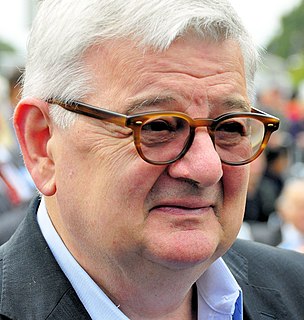A Quote by Leslie Fiedler
Anybody in the next centuries wanting to know what it was like to be a poet in the middle of the 20th century should read Kaddish.
Related Quotes
D-Day represents the greatest achievement of the american people and system in the 20th century. It was the pivot point of the 20th century. It was the day on which the decision was made as to who was going to rule in this world in the second half of the 20th century. Is it going to be Nazism, is it going to be communism, or are the democracies going to prevail?







































